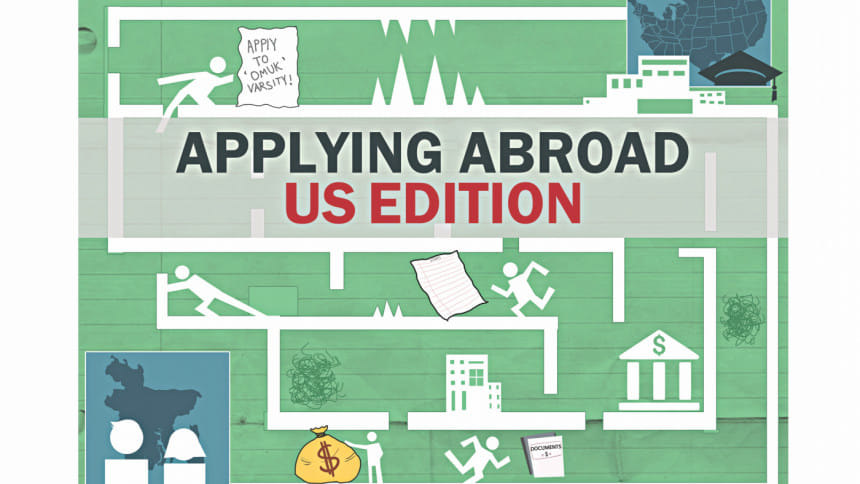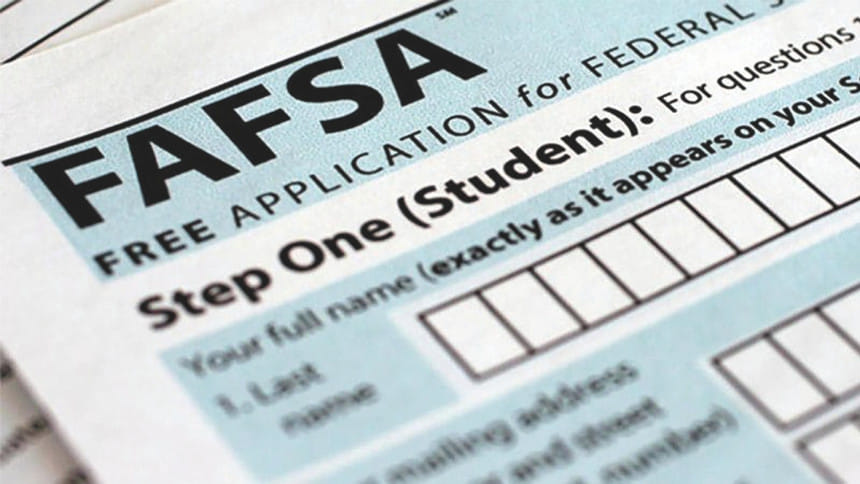Applying Abroad US Edition

While studying abroad is a dream that many aspiring students have, how exactly to achieve that dream often remains a mystery to many students and parents alike. The information that follows would be useful for those who've already done some research, have an idea of the universities they want to go to, and are now worried about some of the details of this lengthy process.
LETTERS OF RECOMMENDATION
Admissions officers place great importance on recommendation letters. What universities essentially want from these recommendation letters is to get a grasp of the kind of person you are outside the four walls of your classroom. Are you a leader? A change-maker? A passionate activist? What motivates you? Who are you beyond the numbers on your transcript? Your letters of recommendation can either make or break your future, so choose carefully before you ask someone to write a letter of recommendation.

Whether it's a teacher from school, your employer, or a family friend, your recommender should stress on your personal attributes as well as your intellectual capability. Don't be shy to tell your recommender what you would want written on your letter. Do you have a special talent you want highlighted? A side of yourself you think universities would be impressed by? Tell your recommender to write about it. Your recommender should also be someone who can comment on your transformation through four years of high school, someone who can tell the colleges about the best version of yourself. Don't let the letter be a resume that merely lists your activities. What have you learned from these activities? How have they shaped you and others around you? Go all out.
ESSAYS
Your essays also play an integral role in deciding whether you're offered admission into a university. Even if you're at the top of your class and have perfect test scores, universities want to know that you're a (somewhat) fascinating person. You have to be a decent writer if you want to get into a top school. Your essays also illustrate to the admissions committee that you're ready for the extensive writing that university life will undoubtedly throw your way.
Universities don't only look for kids who have had immense personal struggles and worked through it, but rather introspective, kind-hearted and thoughtful students who will have something to bring to their community. Admissions officers are tired of reading essays about sick relatives or pets, inspiring stories about immigrant parents, and overcoming challenges. They say if you can make your admission officer cry with your essay, you're guaranteed admission into the university, so get creative.
Essays include not just the one Common App essay but also the supplemental essays that some colleges require. For the why [insert college name here] essays, do your research. Focus on the details. What are the courses you're interested in? What professors do you look forward to working with? Is it the diverse student body that excites you or the breathtaking campus? Write it all down. Show the universities that you've done your homework and that you're genuinely interested.

FINANCIAL AID
The United States of America is known to be the top destination for international students around the world because of how generous they can be with aid. University is a fleeting dream for many US nationals, and it's thrice as fleeting for international students because of how financially draining it is. Amidst tuition, living costs, books and other miscellaneous expenses, managing finances can get very complicated.
Scholarships
If you're sceptical about getting aid from the university to which you're applying, start by looking into national scholarships. IDP, along with other educational agencies, and websites like wemakescholars.com have a long list of scholarships that are granted to Bangladeshi students looking to study in the US. ScholarSnapp comprises an even bigger list. Focus on getting high scores in standardised tests - many universities give out scholarships based on your SAT scores, too.
Don't rely on just need-based aid, but also look into merit-based, athletic and extracurricular scholarships. Yes, that's right. Many universities offer scholarships based on your extracurricular activities. Take Tulane University for example; they offer Community Service Fellowship scholarships to students who "demonstrate high academic achievement as well as outstanding dedication to serving the community with leadership, passion, peer engagement and resourcefulness." Remember when your counsellor told you to engage in ECAs? They said it for a reason.

Financial aid forms
There are various forms students have to fill out when applying for financial aid. These can include the FAFSA, ISFAA, Certificate of Finance, university-specific financial aid forms and the CSS profile. The latter is extensive, and can seem daunting. Many states have a first-come, first-serve policy with financial aid offers, so whether it's FAFSA, ISFAA, or even your CSS Profile, make sure you fill out your application as soon as it's released. However, the main purpose of these forms is not only to show universities that you require aid, but also to help them understand your situation in the context of your local economy. You can provide details on your family's earnings and expenses and explain special circumstances. It is helpful to sit with your parents when doing this along with TIN certificates and bank statements. This process might require time, so it is best to finish this as early as possible. It is also important to remember that changes cannot be made after submission of the CSS form.
If the process still seems difficult, you have the option of attending workshops arranged at places like EMK Center, or ask for help on Facebook groups like Bangladeshis Beyond Borders to get an outline of the process.
Tax documents
You might have to submit tax documents. Bangladesh and the US have different tax years, with the American one being from January to December and Bangladesh's one being from July to June. You might therefore have to submit tax documents from the last two years. It's generally best to check the university-specific requirements for these documents.
If the tax documents are in Bangla, don't worry. You can get an official translation from a notarised translating agency. It can be scanned and submitted through the IDOC, the instructions of which you'll get after the submission of the CSS form.
THE VISA PROCESS
According to visa officers, one of the biggest reasons student visas get denied is because students fail to meet English language requirements. Embassies want to know that you will be a good fit for the country you're going to. Another reason is failure to show credibility of annual living expenses. On an F-1 student visa, financial resources must clearly cover a 12-month academic term. Although you're not expected to pay for your expenses right away, you are expected to show the visa officers where the money will be coming from. Your visa might even get rejected for past misdemeanours, or because the documents you submit are insufficient. And although many people believe that this is untrue – many people get their visa rejected because of the content they choose to post on social media.
However, one of the biggest aspects that you should focus on is the fact that visa officers want to see that you have an intention to return home after graduation. It is therefore important for you to highlight that you do not intend to stay back after completion of your degree. While visa processing sometimes takes a few weeks, it can also drone on for months, so make sure you start your visa processing early. If your visa gets denied, make sure you have all the required documents before applying again. Don't fret – many get their visa after the fifth try.
The process of applying to university is exhausting, and it becomes all the more stressful because of the high hopes that students apply with. What is important, however, is to remember that many factors, many of which are often out of your control, play a role in the decisions made by universities. These can range from students in the US getting a cumulative GPA higher than 4 because they took AP or IB courses, to students' interest in the university demonstrated by campus visits. In addition, there is grade inflation, increasing competition, ever lower acceptance rates, and the fact that different schools have different preferences for international students.
The point of mentioning these factors? To help people who feel dejected after a rejection realise that it's alright. Have faith in yourself, your abilities, and your efforts, and you might be a step closer to fulfilling your dreams.
Aliza is Matilda resurrected. Reach her at [email protected]
Fariha is currently stressing about university admissions. Send her memes at [email protected]

 For all latest news, follow The Daily Star's Google News channel.
For all latest news, follow The Daily Star's Google News channel. 



Comments